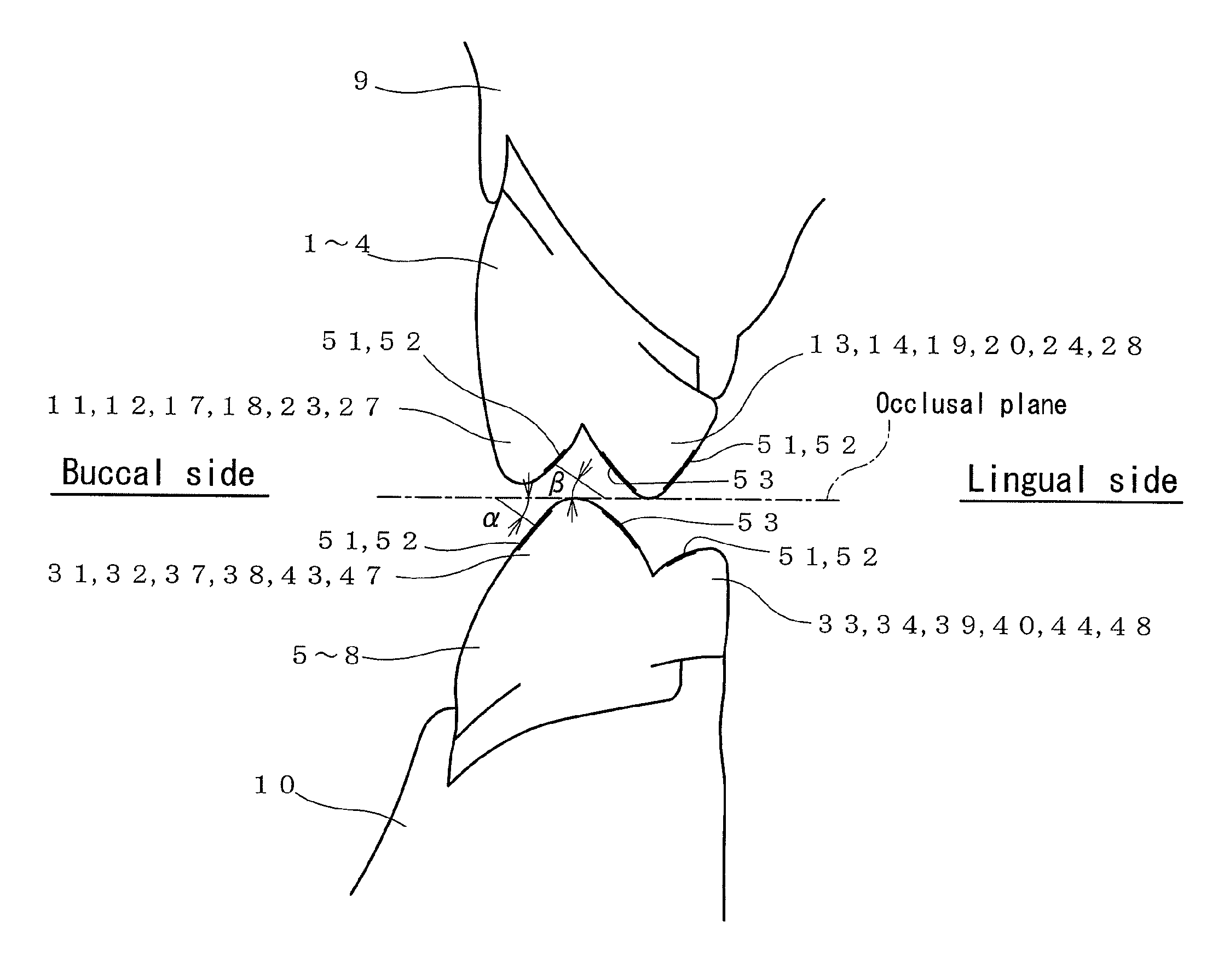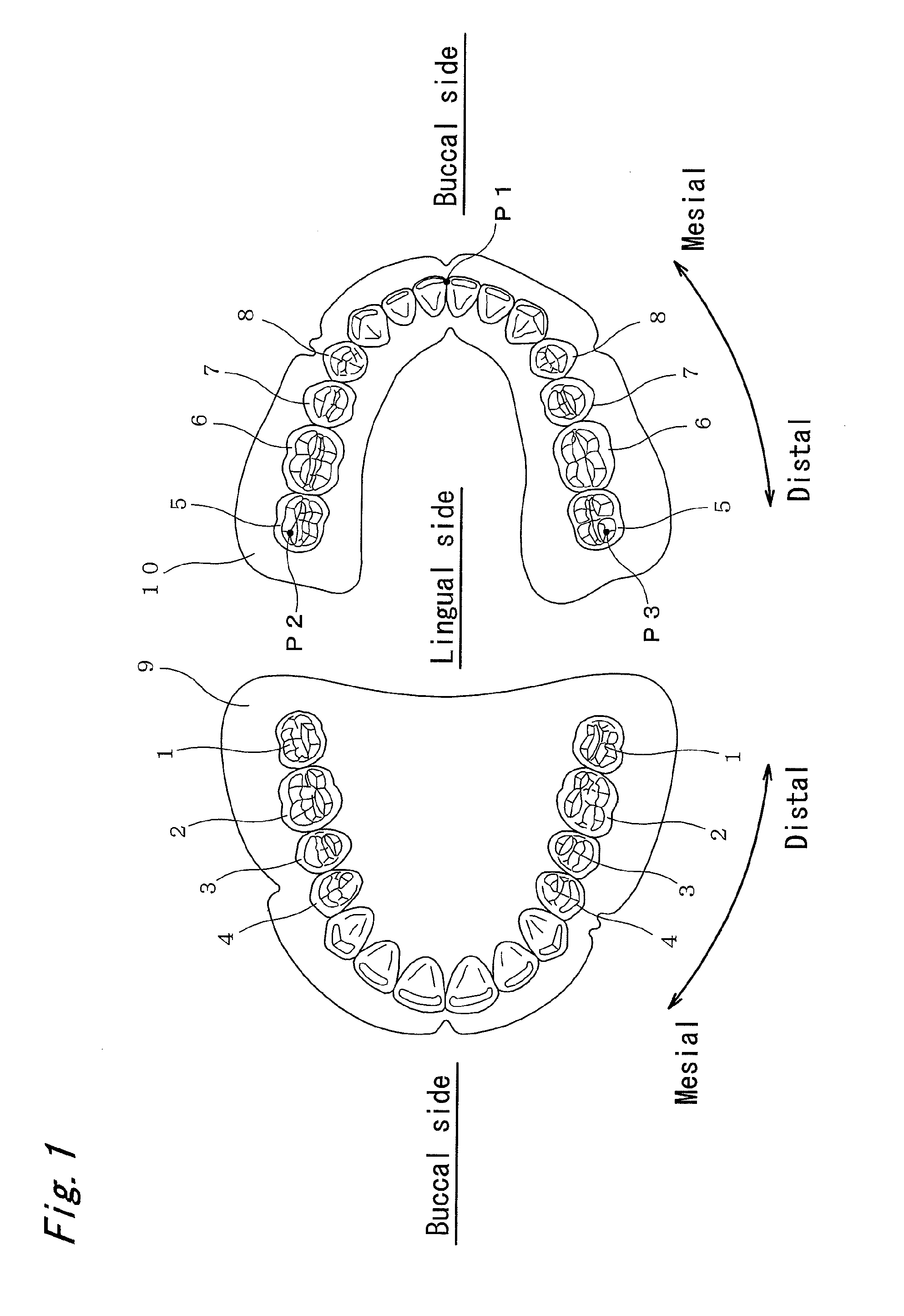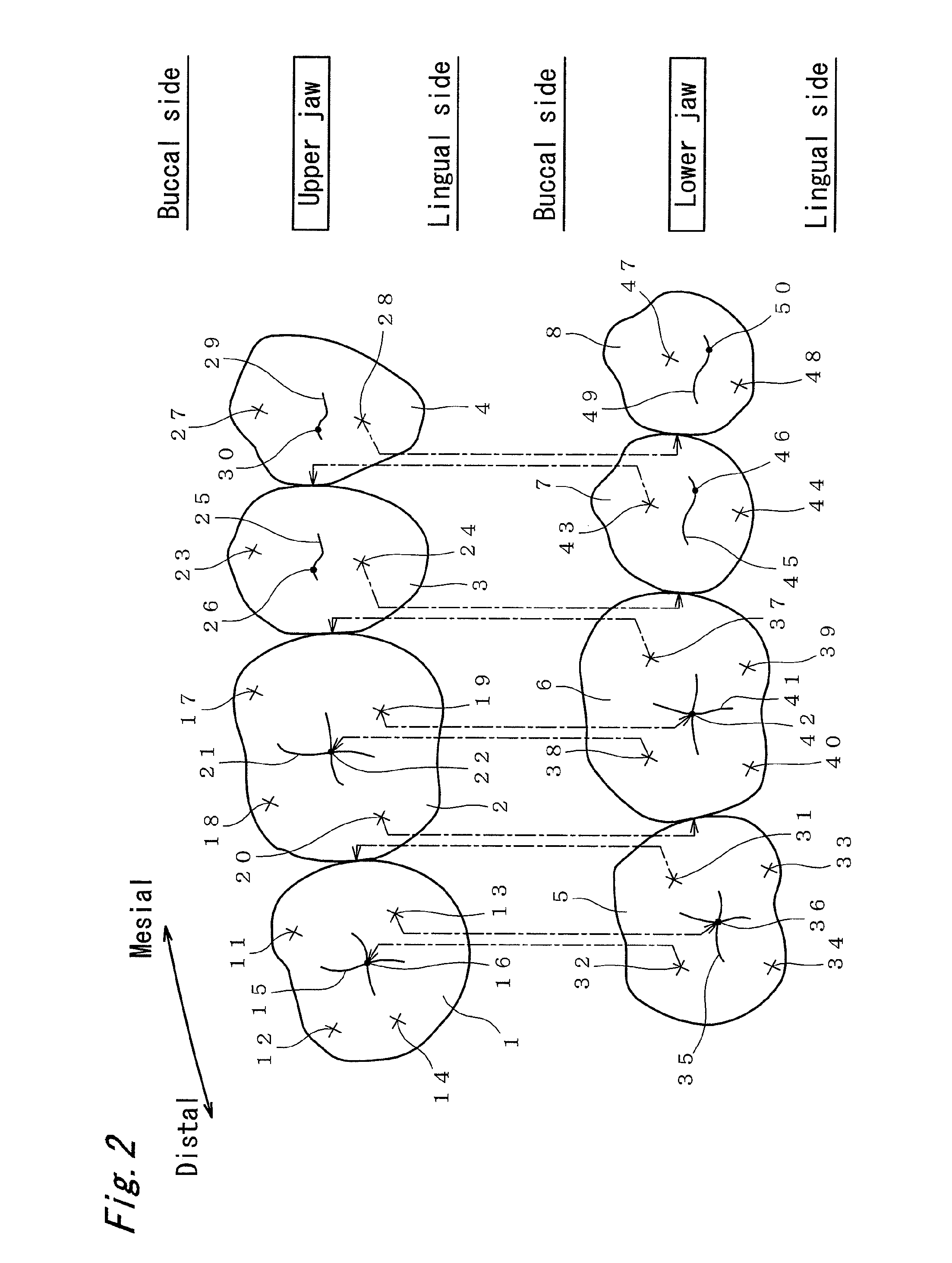Artificial molar teeth
a technology of artificial teeth and molars, applied in the field of artificial teeth, can solve the problems of difficult to arrange the opposing artificial molar teeth in an appropriate positional relation, require advanced skill and experience, and it is extremely difficult to make dentures for each patien
- Summary
- Abstract
- Description
- Claims
- Application Information
AI Technical Summary
Benefits of technology
Problems solved by technology
Method used
Image
Examples
Embodiment Construction
[0031]An embodiment of the present invention is described below with reference to the drawings.
[0032]The present invention relates to a technique of making artificial teeth as a dental prosthetic appliance as a denture and, especially to a technique capable of applying for making artificial molar teeth. The artificial molar teeth include a first molar tooth, a second molar tooth, a first premolar tooth, and a second premolar tooth, and a combination of at least one pair of maxillary and mandibular antagonist teeth may be preferred.
[0033]FIG. 1 shows a general arrangement of all artificial teeth, in which the left side shows the upper jaw, and the right side shows the lower jaw. In the artificial teeth, one maxillary tooth corresponds to one mandibular tooth. The artificial molar teeth may be made of any medical material including ceramic teeth, resin teeth, or composite artificial teeth. In the following explanation, a direction approaching the anterior teeth (central incisor) refer...
PUM
 Login to View More
Login to View More Abstract
Description
Claims
Application Information
 Login to View More
Login to View More - R&D
- Intellectual Property
- Life Sciences
- Materials
- Tech Scout
- Unparalleled Data Quality
- Higher Quality Content
- 60% Fewer Hallucinations
Browse by: Latest US Patents, China's latest patents, Technical Efficacy Thesaurus, Application Domain, Technology Topic, Popular Technical Reports.
© 2025 PatSnap. All rights reserved.Legal|Privacy policy|Modern Slavery Act Transparency Statement|Sitemap|About US| Contact US: help@patsnap.com



